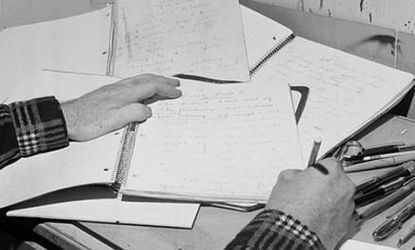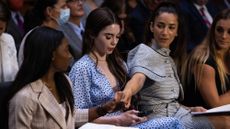Tweeting and blogging are the new commonplacing
Personal journals, known as commonplaces, used to be incredibly popular. In the digital age, we're still enamored with this practice. We just do it differently

Commonplace books, which were once quite popular, were essentially writers' notebooks, where people could collect interesting ideas and quotes. It was compiled by an individual who took pains to collect and record things from his or her reading and experience. Passages important for reference were collected, usually under general heads.
Students compiled these notebooks in the course of their readings to create a stock of ideas for their speeches and compositions. Perhaps it was medical recipes, quotes, letters, poems, tables of weights and measures, proverbs, prayers, legal formulas. Commonplaces were used by readers, writers, students, and humanists as an aid for remembering useful concepts or facts they had learned. Each commonplace book was unique to its creator's particular interests.
If you were lost on a desert island, it'd be a great thing to have.
Subscribe to The Week
Escape your echo chamber. Get the facts behind the news, plus analysis from multiple perspectives.

Sign up for The Week's Free Newsletters
From our morning news briefing to a weekly Good News Newsletter, get the best of The Week delivered directly to your inbox.
From our morning news briefing to a weekly Good News Newsletter, get the best of The Week delivered directly to your inbox.
Commonplace books (or commonplaces) emerged in the Renaissance, especially the 15th century, with the availability of cheap paper for writing, mainly in England. Commonplace notebooks were the direct descendants of medieval florilegia ("collection of excerpts from written texts") and can be traced back in the European tradition to the 5th century B.C.E. and the Sophist, Protagoras.
Reading the commonplace books of historical figures like George Washington, Henry David Thoreau, Thomas Jefferson, or any number of antebellum Southern ladies gives us an interior view of each person's self — images and words that motivated him or her. (Notable examples: Ben Jonson's Timber (1640) and W. H. Auden's A Certain World (1971).) These treasure houses of ancient and modern knowledge preserve quotations, anecdotes, maxims, jokes, verses, and magical spells, as well as astrological predictions, medicinal and culinary recipes, devotional texts, and mathematical tables.
Commonplacing involves a special way of taking in the printed word and the world in general. Reading and writing are inseparable and extremely important activities in the 21st century. Many people today read in fits and starts and jump from one type of content to another. A lot of people have written things down in diary form, in journals, in agenda books, in personal organizers, and now — on blogs, Twitter and other social media. We see a lot of people recording and reporting on what they have read, heard, or seen that they want to remember or share. But instead of a personal diary or journal, we tend to commit our thoughts to a computer record. In many cases, people are breaking books and other writings into fragments and assembling them into new patterns by transcribing them into tweets and other online writings. These activities are part of a continuous effort to make sense of things, for the world is confusing to us all. Our collective writings are stamped with our own personality, just as they were in commonplace books.
Dr. Samuel Johnson said that people "more frequently require to be reminded than informed." Commonplacing reminds the reader to approach every experience as a first — that bowl of cereal that you have been automatically pouring becomes a more fulfilling experience when you slow down and let your senses take over. Whether it's commonplacing on a laptop or tablet, or using a Moleskine, those notes are there before you go to sleep at night, during the night if you can't sleep, early morning when you wake up, during trips, in the bathroom, as something to read instead of watching television. When you are sipping tea or coffee, sitting by a fireplace, lying in a hammock or on a beach — commonplacing is fun. It is getting lost in words and feeling good about that. Commonplacing offers the reader many opportunities to meditate and relax, learn and muse. It is a form of entertainment, a way to amuse yourself — and share that with others.
Sign up for Today's Best Articles in your inbox
A free daily email with the biggest news stories of the day – and the best features from TheWeek.com
Create an account with the same email registered to your subscription to unlock access.
-
 'Voters know Biden and Trump all too well'
'Voters know Biden and Trump all too well'Instant Opinion Opinion, comment and editorials of the day
By Harold Maass, The Week US Published
-
 Is the Gaza war tearing US university campuses apart?
Is the Gaza war tearing US university campuses apart?Today's Big Question Protests at Columbia University, other institutions, pit free speech against student safety
By Joel Mathis, The Week US Published
-
 DOJ settles with Nassar victims for $138M
DOJ settles with Nassar victims for $138MSpeed Read The settlement includes 139 sexual abuse victims of the former USA Gymnastics doctor
By Justin Klawans, The Week US Published